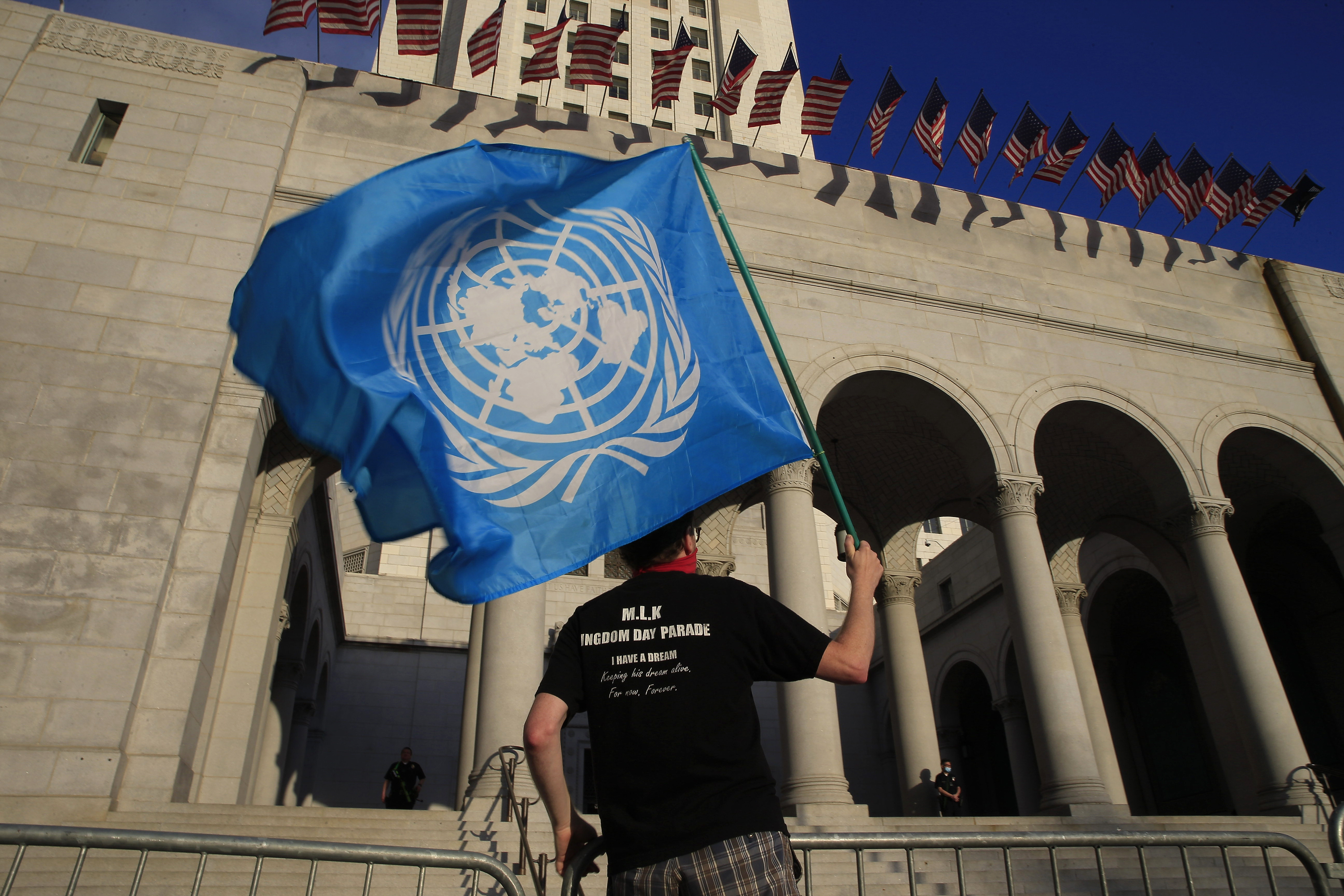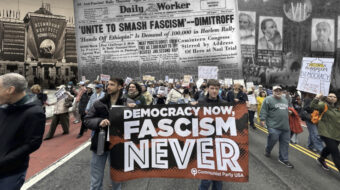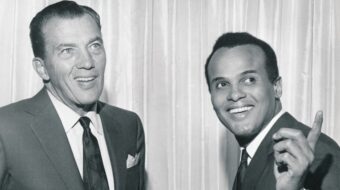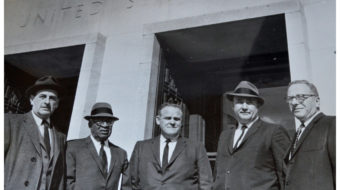
NEW YORK—The families of hundreds of unarmed Black Americans killed by cops in the last 20 years, plus the Communist Party USA and 169 other groups, have formally asked the United Nations Commission on Human Rights to comprehensively investigate and report on the slayings, along with recommendations for reform.
The party’s signature aligns with its African-American Equality Commission’s evaluation, posted on the CPUSA website. It praised Democratic President Joe Biden’s Justice Department for opening wide-ranging investigations of police departments in Minneapolis and Louisville, Ky.
“All deliberate effort must be brought with all deliberate speed to address the crime of institutionalized racism and racist police violence of which it is the sharpest edge. International pressure is required because while the fountainhead is the U.S. the problem is transnational. Paul Robeson and William Patterson knew it as does broad sections of the U.S. and world public today. Keep the pressure on!” CPUSA co-chair Joe Sims told People’s World.
“It needs to be said that the police are still killing us,” the party’s May 7 assessment of the Biden administration’s first 100 days in office adds.
“Strong stances have been taken on voting rights and policing, as we saw in the case of the George Floyd trial and the president’s calling white supremacy terrorism in his speech to Congress,” plus the Minneapolis and Louisville police probes, the commission also said in its section of the CP’s Biden evaluation.
Besides the CPUSA and other groups, the family of George Floyd, whose murder by Minneapolis police officer Derek Chauvin last May 25 touched off the latest and largest nationwide peaceful protests against systemic racism, were among the first individual signers of the letter.
Two other signers were family members of kids killed by Chicago cops, and a third was the brother of a woman whom city cops shot.
Signers also include Michael Brown, Sr., and Lezley McSpadden, parents of Michael Brown, Jr., whose 2014 murder by a Ferguson, Mo., officer led to an explosion of the Black Lives Matter protest movement.
 The joint letter, authored by the American Civil Liberties Union, wants the U.N. human rights body to undertake—and publish—the results of an investigation of U.S. police racism and the resulting killings.
The joint letter, authored by the American Civil Liberties Union, wants the U.N. human rights body to undertake—and publish—the results of an investigation of U.S. police racism and the resulting killings.
In their May 10 letter to Michelle Bachelet, the former progressive Chilean president who now chairs the commission, the groups and the relatives lauded the panel for passing a resolution months ago calling for the investigation. Now they want it to act. They noted the original resolution was “watered down” under pressure from the former GOP Trump administration.
Signers expect the commission’s “report will reflect and amplify the voices of victims who are people of African descent, their families and communities” and “examine the root causes that have enabled systemic racism and police violence, including the legacies of enslavement, the transatlantic trade in enslaved Africans, and its context of colonialism.”
Click here to read the full letter to the United Nations Human Rights Commission.
They recommended Bachelet’s panel establish a specific “commission of inquiry” on U.S. police racism and a more general commission to consider worldwide police racism and the relationship of such racism to the legacy of the trans-Atlantic slave trade.
“A robust international accountability mechanism would further support and complement, not undermine, efforts to dismantle systemic racism in the United States, especially in the context of police violence against people of African descent,” their letter says.
“Police in the United States kill nearly 1,000 people every year. The epidemic of police violence has been directly and disproportionately targeted at people of color. Indigenous People and people of African descent experience the highest rates of fatal police shootings, followed by Latinx people.
“For example, in 2019, Black and Indigenous people were approximately three times more likely than white people to be fatally shot by police. One study found that young unarmed male victims of deadly force by police are 13 times more likely to be Black than white. Stunningly, for young men of color, police use of force is now among the leading causes of death,” the letter notes.
“Some data indicates that although women are less likely than men to be killed by police overall, Black women and Indigenous women are more likely to be killed by police than white women. Furthermore, while police killings are higher in high-poverty areas than low-poverty areas for all racial groups, Black people who live in more affluent areas are almost as likely to be killed by police as white people who live in the poorest areas.”
And despite Chauvin’s conviction in Floyd’s murder, “98.3% of killings by police from 2013-2020 have not resulted in officers being charged with a crime. Between 2005 and 2015, only 54 officers were charged after police-involved killings, despite the thousands of such incidents that occurred over the same time. Impunity for police killings in the United States, especially those of African descent, continues unabated.
“It’s extremely daunting to end impunity” for police in killing Blacks, since—despite Biden’s commitment, pending legislation named for Floyd, and the Justice Department probes—there are 18,000 state and local police departments in the U.S. and the federal government exercises little to no influence or control over them, their letter notes.










